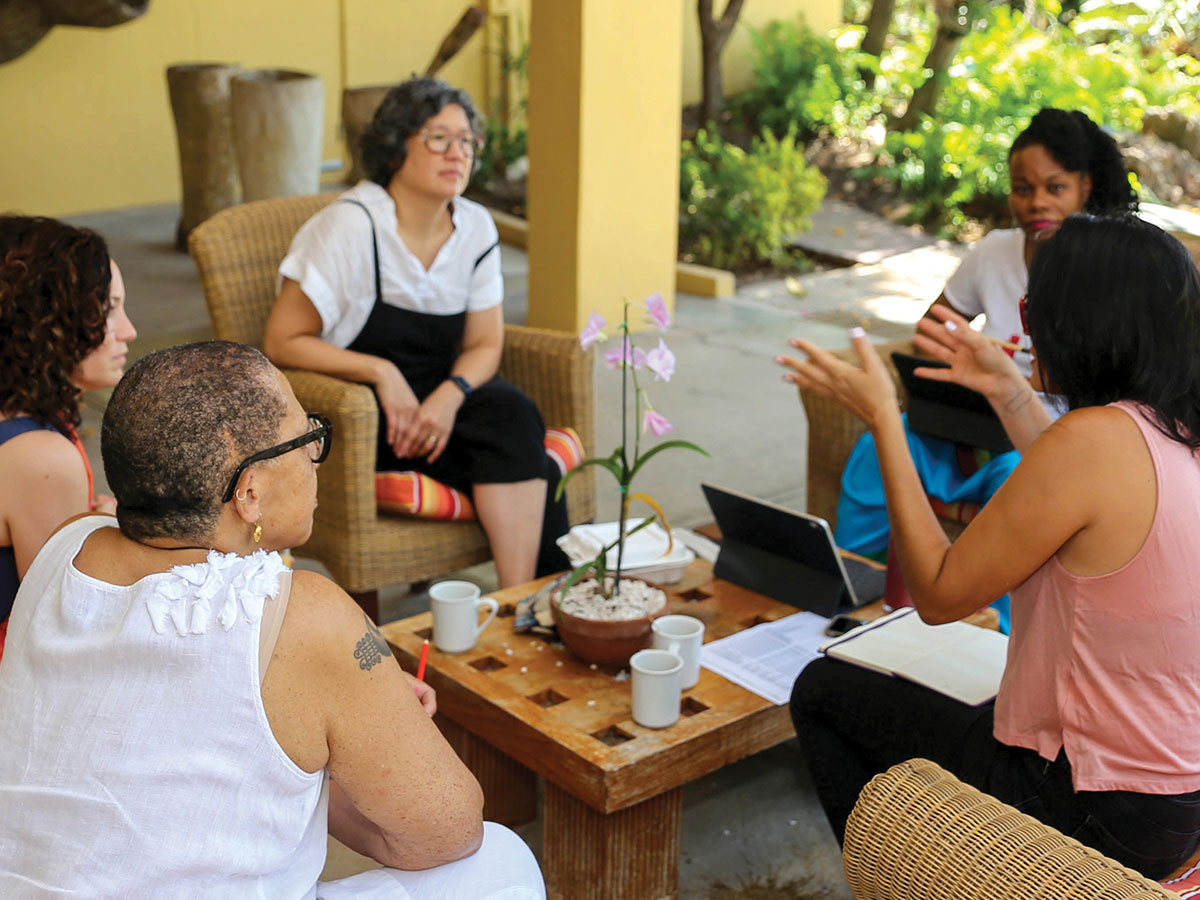
Last week, we posted the first report in our series, detailing how grants management is evolving to meet rapidly changing needs. This week, we report on our first Community Conversation, Managing Responsive Grantmaking During the COVID-19 Crisis. It was a record-breaking virtual meeting for PEAK, with 370 members engaged in generous peer sharing and learning. Here’s what we learned:
Transformation is the new normal
Responses to a series of snap polls illuminated the degree of transformation happening in just a few weeks:
- 97% are considering changing grant practices, including changes to their application, due diligence and decision-making processes, reporting requirements, and more.
- 63% are considering changing grant priorities (who or what they fund)
Five PEAK members shared their organizations’ response and adapting practices – Kelly Hayashi of the Heising-Simons Foundation, Kristen Summers of Saint Luke’s Foundation, Lori Perkins of the Ausherman Family Foundation, Kerry McHugh of the Helen J. Sereni Foundation, and Genise Singleton of The Kresge Foundation.
Two key areas of change emerged – grant priorities and grant practices – with a variety of approaches across the five organizations:
1. Grantmakers are supporting their communities by changing or expanding the scope of their grant priorities and establishing emergency response funds to cover emerging needs, but implementation varies greatly.
- The Heising-Simons Foundation established an emergency response fund within their existing Community and Opportunity Grants program and expanded the scope of their health-focused grants to cover COVID-19 research.
- The Saint Luke’s Foundation contributed funds to their local community foundation pooled fund and plans to expand their 2020 grantmaking budget to provide current grantees with additional funds when they express need.
- The Ausherman Family Foundation and Helen J. Serini Foundation have partnered with five local funders to coordinate one application process for emergency support in the Frederick, MD area.
How funders are communicating with grantees about their emergency funding opportunities varies. In some cases, a representative (usually a program officer) is reaching out individually to grantees to learn about their needs. For others, who lack the capacity to do so, they are instead sending newsletters or emails encouraging grantees to reach out about emerging needs.
We also heard about variety in how organizations define “emergency need.”
- Saint Luke’s Foundation defines need as any organization that is facing increased expenses or decreased funding due to the COVID-19 crisis.
- The Heising-Simons Foundation asks current grantees to simply express a compelling need to their program officer to access emergency funds.
- Kerry McHugh with the Helen J. Serini Foundation reported that the funder collaborative would likely prioritize applications based on the immediacy of the need within a 48-hour period, like those from food banks, housing providers, and other organizations to meet growing service demands or avoid staff layoffs.
2. Grantmakers are changing everything about their grant practices to minimize the burden on grantees and maximize support, and there’s no one “right way” to do it.
As we reported last week, our members are currently rethinking everything about their grantmaking practices, including simplifying applications, extending grant periods, and adjusting budget allocations. And they are demonstrating that there is no one “right way” to do it. Here are a few of the most compelling ideas we heard:
- The Heising-Simons Foundation waived all proposal requirements, financial due diligence, grant agreements, and reporting for emergency general support grants to current grantees. They have proposed increasing the dollar value for grants released at staff discretion, and program staff need only present a brief consolidated memo to get emergency funds approved.
- The Saint Luke’s Foundation has cancelled any grant reports due before June 1 or converted them to phone calls. They will send installment payments early for payments scheduled for the remainder of 2020. Communications to all their grantees state that they will be flexible on outcomes, grants can be extended, funds leftover at the end of a grant period should not be returned and grantees have permission to use restricted grants for unrestricted purposes.
- The Helen J. Serini Foundation will sending multi-year payments earlier than scheduled and they have cancelled all scheduled grantee site visits, follow up, and reporting until further notice. To encourage grantees to reach out, Kerry McHugh has provided them with her personal cell phone number and instructions to call anytime for support.
- The Ausherman Family Foundation is facilitating convenings and collaborations by sharing organization lists with other local funders, connecting organizations for resource sharing, and tracking COVID granting data with other funders in their geographic area of focus.
- The Kresge Foundation is seeking approval to relax financial amendment policies to allow grantees to change project scope more often for larger dollar values this year, and paying grants to recent grantees without requiring updated banking information. Their grants management staff is also working with systems administration to track COVID-related financial amendments, grants, and metrics.
“This is personal”
We heard clearly that grants management professionals feel challenged and overwhelmed; yet, they are also driven by a compelling need to act in the face of urgency and uncertainty.
Genise Singleton with the Kresge Foundation spoke for many, when she said that the current crisis and the work grants management professionals now do is deeply personal, and this is a moment for all to demonstrate what it means to be a grants manager – to be flexible, adaptable, and a human being first.
Change for good?
There is no question that grants management is undergoing a rapid and profound transformation. The question – and opportunity – is whether this response will translate into permanent change once the crisis has passed. PEAK will be tracking the trajectory every step of the way
Our plans for continuing support
During the call, there was overwhelming support for additional Community Conversations focused on COVID-19 response efforts, so we’re moving forward with bi-weekly calls. Our next meeting is scheduled for April 9 at 3:00pm EST. Register to join us.
As a direct response to many questions raised on the first call, we’ll be joined by Suzanne Friday, Council on Foundations’ Executive Director of National Standards and Vice President of Legal. Suzanne will share information and answer questions about legal compliance as grantmakers move to streamline practices to better support grantees during the crisis. We’ll also be using Zoom breakout rooms to host open conversations tailored to specific organization type (e.g. community foundation, governmental entity, etc.).
In our call, we also heard a widespread need to learn and share more about:
- Evolving practice in international grantmaking
- Navigating issues around fiscal sponsors and expenditure responsibility grants
- How community foundations and public charities with less flexibility are adapting
- Ideas for tracking grant amendments, emergency grants, and other metrics in a standardized way
- The relevance and advisability of bridge loans to local organizations and supporting small businesses
We encourage you to continue the conversation on CONNECT, by posting your questions, challenges, and successes; as well as share sample policies, form templates, organization tactics and more. We’ll round them all up in a dedicated COVID-19 hub.
The PEAK team is here to support you in any way we can. Please reach out with suggestions, ideas, and questions to principles@peakgrantmaking.org anytime!


